Monthly Journal
November 2023
International Press Review
The most relevant events of the area through international sources
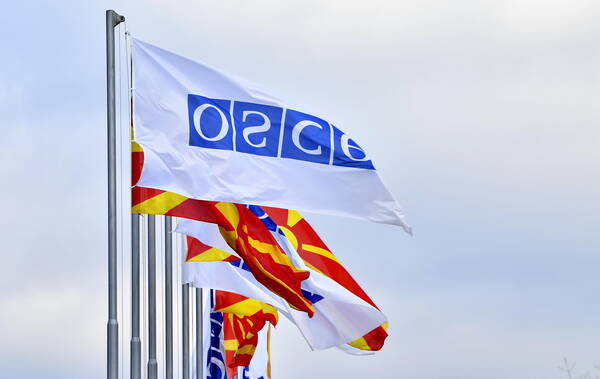
Ukraine and Baltics to boycott OSCE meeting in Skopje
AFP
Ukraine, Lithuania, Estonia and Latvia announced their boycott of a high-level OSCE meeting in Skopje due to the inclusion of Russian Foreign Minister Sergei Lavrov among the guests, together with a Russian delegation. This decision follows North Macedonia and Bulgaria’s decision to allow Lavrov’s flight over its airspace, despite European closures due to Russia’s invasion of Ukraine. Lavrov, under European sanctions, requested North Macedonia and Bulgaria’s airspace access to be able to fly to Skopje, which both countries granted. The Baltic countries said that Lavrov’s planned attendance “risks legitimising aggressor Russia as a rightful member of our community of free nations.”
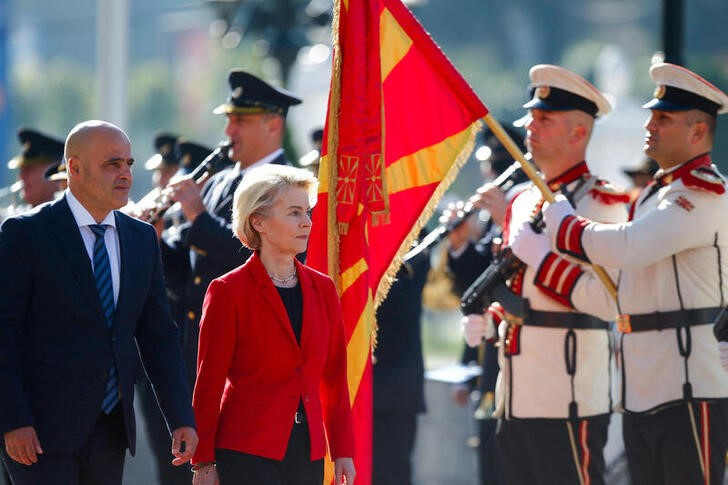
Billions from EU to keep the Balkans close to Europe
Euractiv
Not only geopolitical issues but also socio-economic challenges in the Western Balkans are hampering EU integration, but the EU Ambassador to Albania, Luigi Soreca, anticipates positive effects from a new six billion fund injection from Brussels. The Growth Plan, announced by EC President Ursula von der Leyen, involves providing funds to Western Balkan countries in exchange for reforms. Soreca outlined three pillars of the plan: enhancing economic integration with the EU single market, promoting economic integration within the region, and expediting reforms to attract foreign investment. “Economic convergence is an essential element for Albania and other Western Balkan countries to come closer to the EU. Currently, socio-economic terms are holding these countries back on the path of integration,” Soreca said.
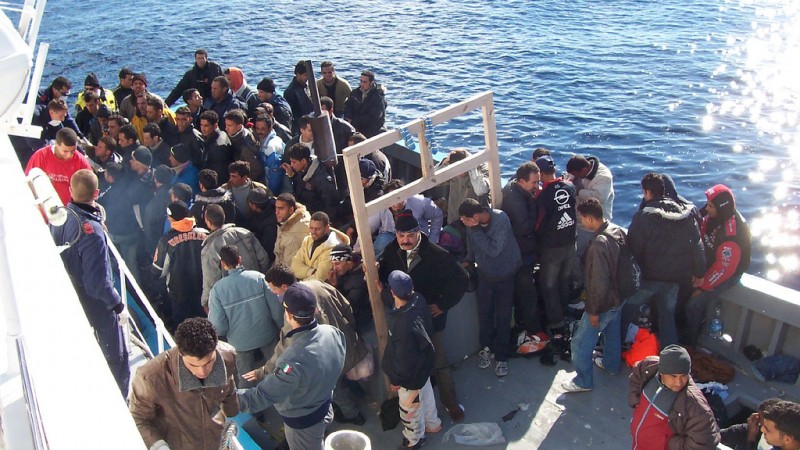
Italy agrees plan with Albania to ‘externalise’ asylum procedures Global Voices
Italy and Albania have agreed to establish an asylum seekers centre in the Balkan country, showcasing increased cooperation but sparking debates about the legal basis of the initiative. According to the plan, migrants rescued in the Mediterranean by the Italian authorities might be hosted in Albania until their asylum cases are assessed. Italy aims at opening the centre in 2024, accommodating there nearly 3.000 people, and plans to enhance further its capacity to process 36.000 immigrants annually. The Memorandum of Understanding between Tirana and Rome has raised human rights concerns, with UNHCR and the Council of Europe Commissioner for Human Rights highlighting concerns about the externalization of asylum responsibilities in Europe.
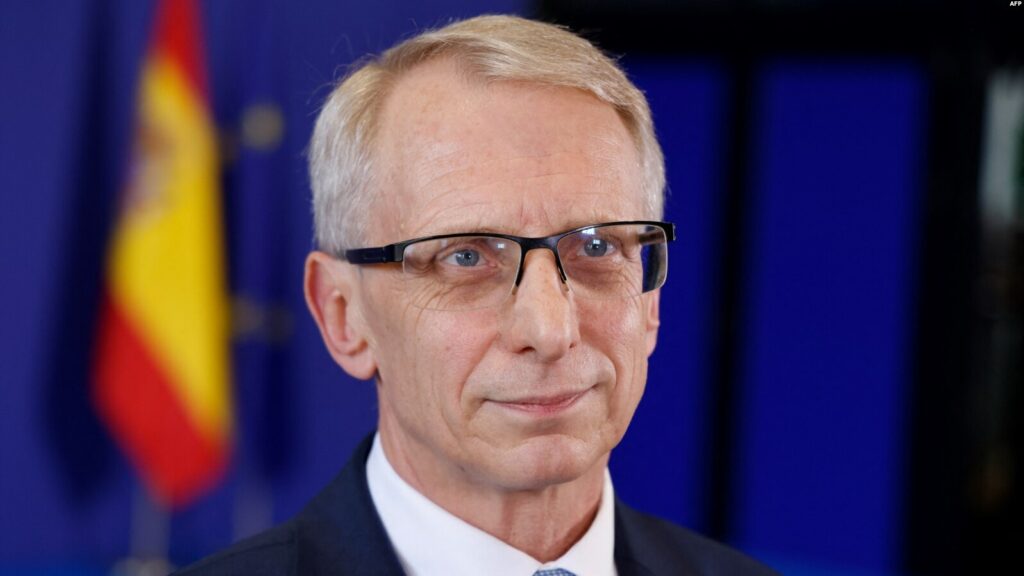
Government in Bulgaria survives no-confidence vote again
Euractiv
The Bulgarian government, accused by the opposition of failures in defence and security fields, survived a second no-confidence vote in November. The motion, supported by the pro-Russian Bulgarian Socialist Party, Vazrazhdane (Revival), and populist ITN party, garnered only 71 votes. The ruling majority is facing several political issues lately, primarily regarding the halt of oil imports from Russia, opposed by the Prime Minister and by the coalition PP-DB due to potential social tensions in winter.
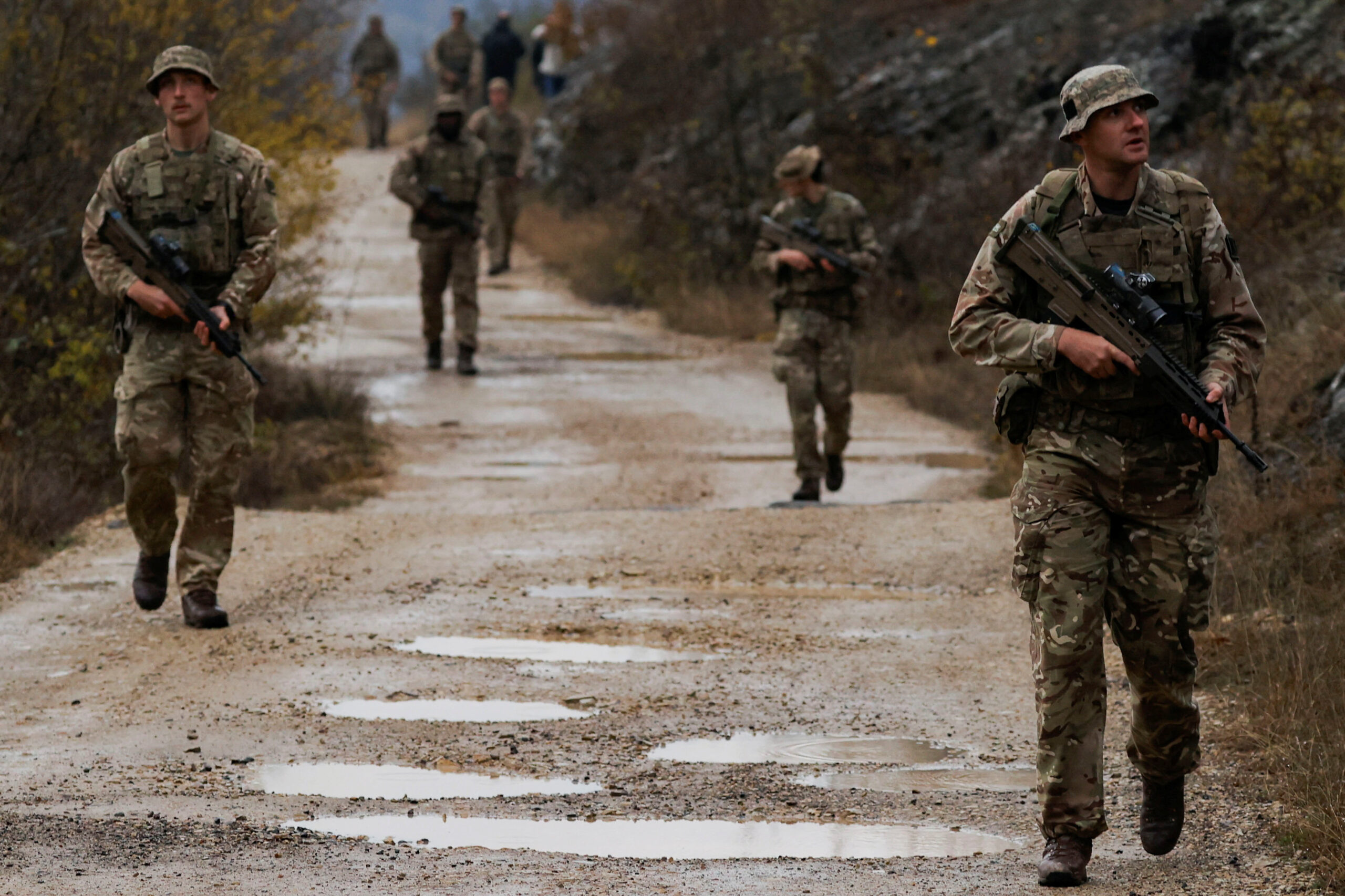
British troops patrol Kosovo-Serbia border
Reuters
British troops started patrolling the Kosovo-Serbia border amid NATO’s increased peacekeeping efforts due to rising concerns about potential unrest in the north of Kosovo or even a conflict between the two Balkan countries. Additional forces from Britain and Romania were sent to Kosovo after the violent clash in Banjska, in northern Kosovo, on the 24th of September. One police officer and three gunmen died in the worst occurrence of violence since Kosovo’s 2008 independence declaration. Kosovo accused Serbia of supporting the paramilitaries, a claim Belgrade denies. British soldiers work 18-hour shifts in the border area to prevent weapons or armed groups from entering Kosovo.
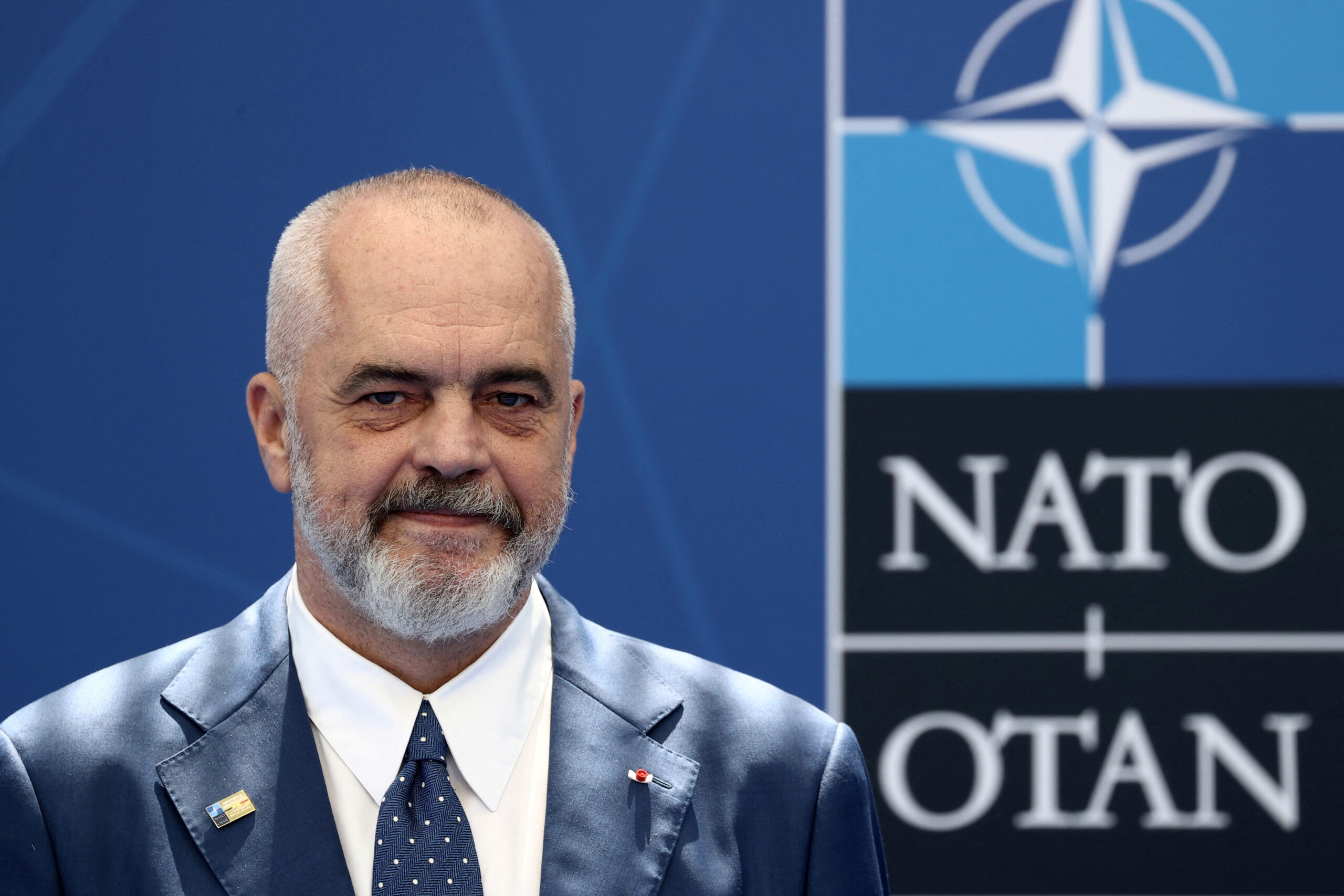
Albania asks for greater NATO engagement in Kosovo and new naval base
Top Channel
Albanian Prime Minister Edi Rama sought reassurances from NATO that the Alliance will better secure borders between Kosovo and Serbia. Rama stressed the necessity for an increased presence of NATO forces in Kosovo, pointing to the Banjska incident as evidence of the elevated risk of destabilization and even conflict escalation. Rama also asked for co-financing of a new NATO naval base in Porto Romano, in Albania. Rama emphasized the urgency of constructing the naval base, as this will offer NATO easier access to the region.
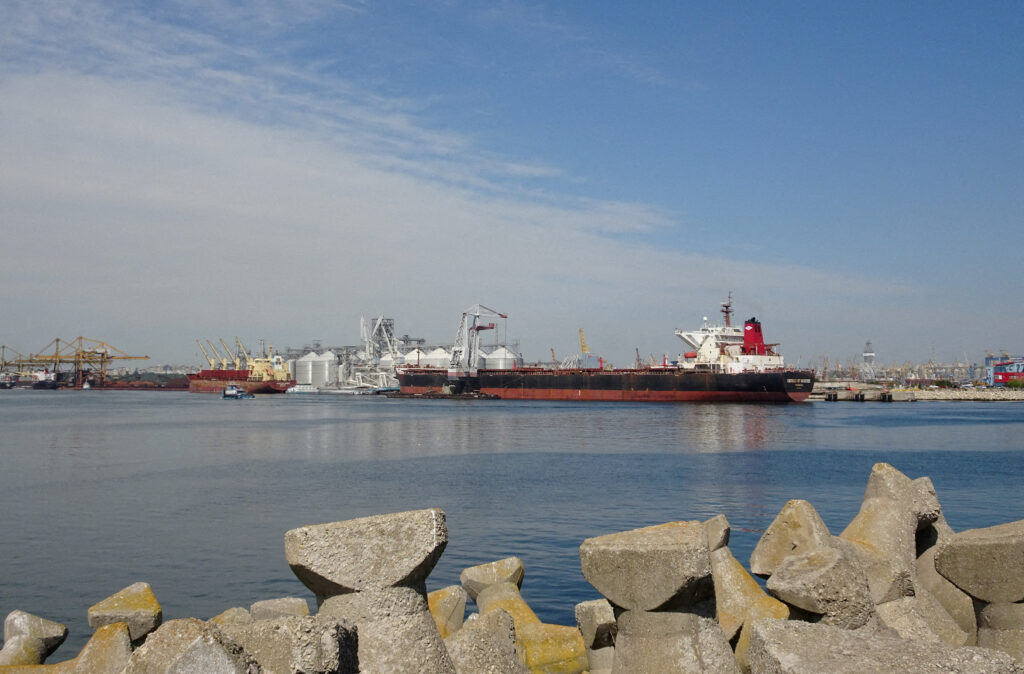
Ukrainian grain shipments from Romania at record pace
Nasdaq
Romania’s Constanta port achieved a record 29,4 million metric tons of grain shipments in the first 10 months of 2023, with 40% originated from Ukraine. As one of the world’s major grain exporters, Ukraine relies on Constanta port as a primary export route following Russia’s invasion. More recently, however, transit volumes from Kyiv have declined due to Russian attacks on Danube River ports and protest blockades at border crossings with Poland and Slovakia. Constanta surpassed its previous annual high of 25 million tons, excluding volumes shipped from smaller Romanian Danube ports.
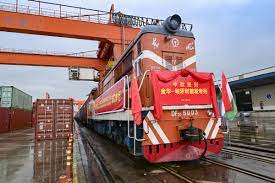
Hungary to boost cooperation with China, but main railway hits a roadblock
China Observers
During the Belt & Road (BRI) Forum in China, Hungary’s PM Orban, the sole EU leader present at the summit, bolstered ties with China’s Huawei and with other Chinese companies, securing new investments and cooperation agreements. Despite domestic concerns and warnings from EU and NATO peers about Chinese involvement in strategic sectors, Orban seems committed to deepening relations with Beijing. However, the flagship Budapest-Belgrade railway project, a Chinese-sponsored initiative, is currently facing substantial delays at least on the Hungarian side. According to regional media reports, challenges that the Chinese investor has difficulty to overcome are related to EU security standardization issues and a lack of proper technology.
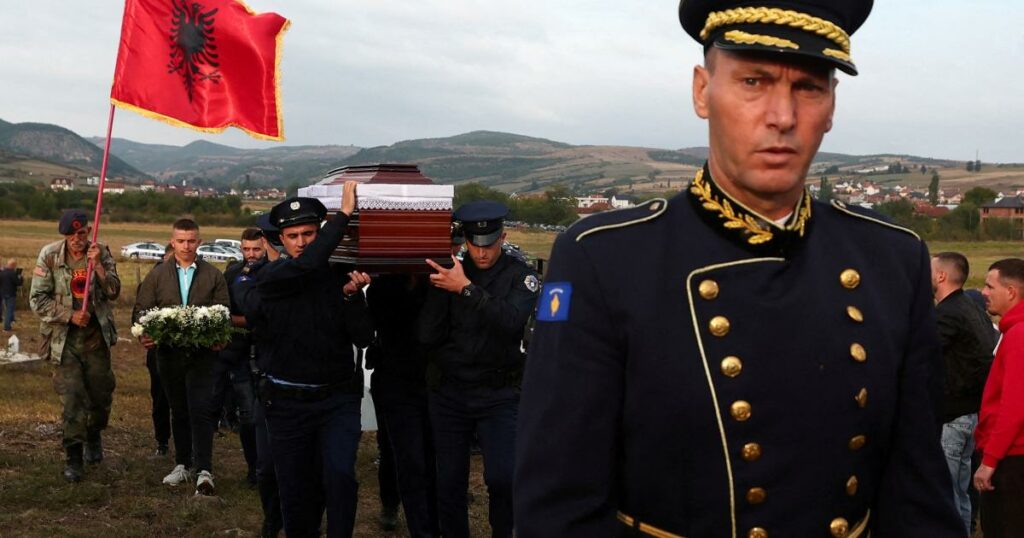
Russia opening a second front in the Balkans should be a concern for the West
Foreign Affairs
A Foreign Affairs op-ed warned that recent incidents between Kosovo and Serbia suggest a more serious threat for the region than past similar episodes, pointing to Russia’s growing influence in the region. Russia has armed Serbia, increased its energy dependence, and promised to block Kosovo’s UN membership, the article underlined, noting Moscow’s interest in exacerbating the historical conflict to strain NATO resources and undermine U.S. power in Europe. The op-ed urges the United States and Europe to convey a strong and unequivocal response both to Belgrade and Moscow regarding future provocations in the Balkans. Furthermore, NATO should boost its presence in the region.
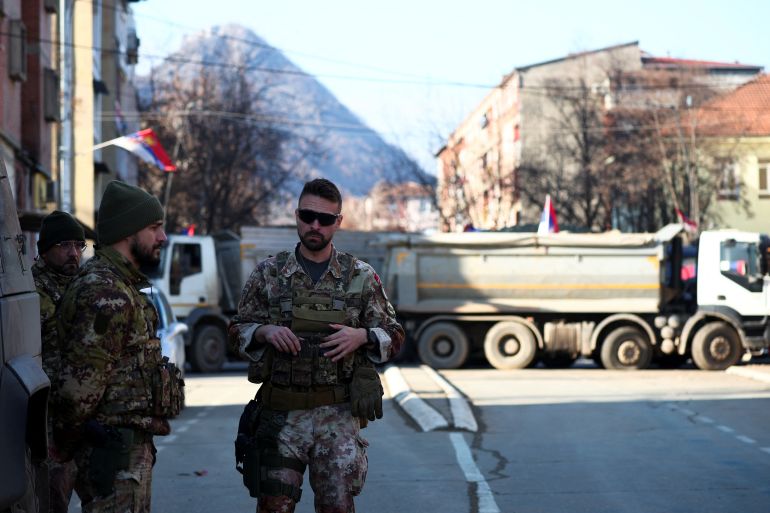
Kosovo Serbs don’t trust Pristina and Serbian main party, ready for armed resistance
N1
A Demostat report revealed that Serbs living in northern Kosovo distrust Pristina’s institutions as well as the Serb List, the party that represents the interests of Belgrade in Kosovo. Following the Banjska incident, trust in Serbian authorities has declined, with higher reliance on the Serbian Orthodox Church and NATO. It is noteworthy to note that both young and older Kosovo Serbs said that are willing to resist Pristina through armed means for personal and home safety, the report said.
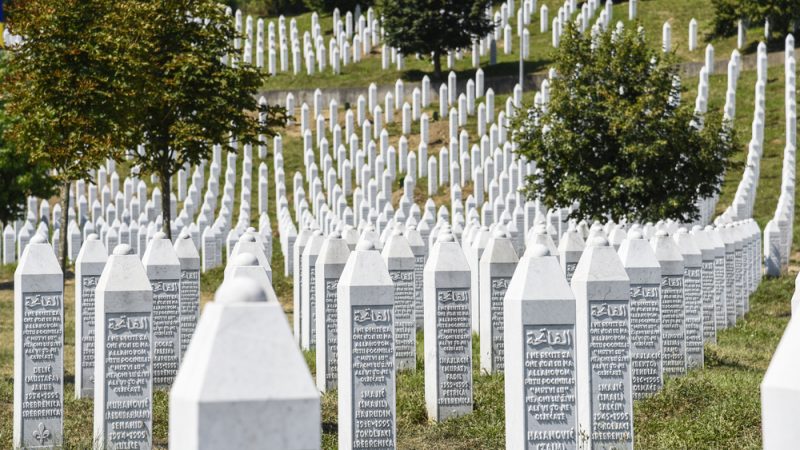
Balkan countries didn’t really face the past, risk to return to conflict
The Guardian
A Council of Europe report warned that the former Yugoslav countries’ failure to address the horrors from the 1990s wars may result in severe consequences for human rights and a potential return to conflict. The report noted a backslide in the region’s pursuit of justice and accountability, causing concerns about impunity. There are also raising fears of a resurgence of conflict in a region that witnessed over 130.000 casualties during the brutal wars thirty years ago, the Council said. “Divisive and hateful narratives that spearheaded the wars of the 1990s are back and regaining strength,” the report said, adding that “this threatens reconciliation (and) peace”.
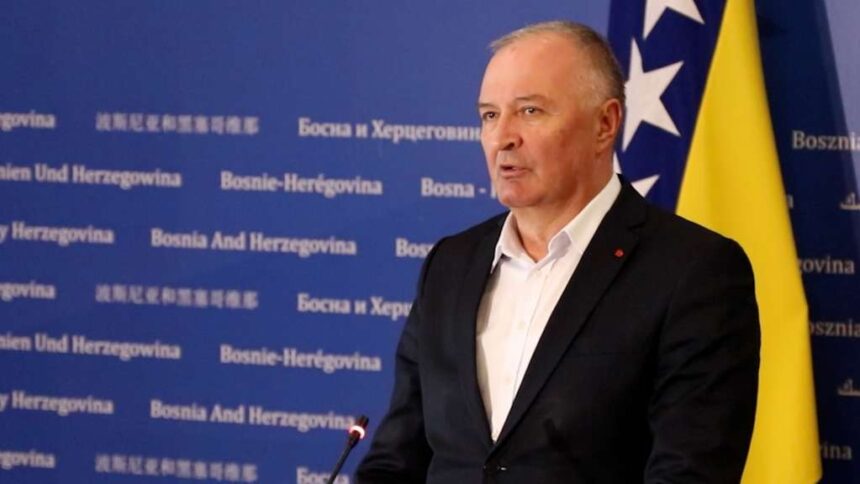
Bosnian Defence Minister says Russian-led paramilitary camps detected
BNE
Paramilitary camps with Russian backing have reportedly been identified in the Bosnian Serb entity Republika Srpska (RS), according to the Bosnian Defence Minister Zukan Helez. Helez claimed to have even photos proving the existence of these camps, allegedly organised for training Bosnian Serbs and some Russians. The camps, according to Helez, are located in villages around Rogatica and in the Maglic mountain area, under the protection of Republika Srpska’s interior ministry, but the peacekeeping mission EUFOR did not confirm the activity of any paramilitaries in the RS. Bosnian Serb politicians had previously raised concerns about potential Islamist terrorist cells in the Balkan country.
The Insight Angle

Filip Ejdus
Formerly a Marie Curie Research Fellow at the School of Sociology Politics and International Studies (SPAIS) at the University of Bristol, he currently serves as Full Professor at the Faculty of Political Sciences of the University of Belgrade, Serbia. A scholar specialized in international relations and international security, Ejdus is a prominent political scientist, with a keen focus on the Western Balkans. He has extensively published in academic journals in the fields of political science, international relations and security studies. One of his recent publications is the book titled “Crisis and Ontological Insecurity: Serbia’s Anxiety over Kosovo’s Secession” (Palgrave Macmillan, 2020). Additionally, he is the founder and co-Editor-in-Chief of the Journal of Regional Security.
Serbia is gearing up for early elections scheduled for the 17th of December. Recent polls indicate that President Vucic’s Progressive Party is likely to secure another victory. What are your expectations from the December vote, and do you anticipate some changes in post-election?
The elections on December 17 will be for the seats in the Serbian Parliament but also for 65 cities and municipalities. I expect the ruling Serbian Progressive Party to win the most votes in the parliamentary elections, but not necessarily in all cities and municipalities. Most importantly, if the opposition wins in Belgrade, this would be a major blow to the regime of Aleksandar Vucic that would certainly be interpreted as the stepping stone to his political downfall.
Despite widespread protests in the spring, the opposition remains fragmented, failing to form a united front against Vucic. Why do you think political opponents in Serbia struggle to present a viable alternative to the voters?
The opposition in Serbia is ideologically split into two camps, one which is in favour of EU membership and future normalization of relations with Pristina and the other which is against. Those two camps are fragmented further into many smaller parties, often so small that they struggle to pass the electoral threshold. Going in one column would seem ideologically inconsistent and could turn away the hard-line voters in each camp. That’s why it was entirely reasonable for the opposition to unite into two ideologically consistent camps. Most of the pro-European camp managed to unite behind the list ‘Serbia against violence’, while the Euro-sceptic camp failed to do so, and will run in at least three columns. The principal reason why they did not unite is a disagreement if there can be a post-elections coalition with the pro-EU camp or no.
Following the elections, a prolonged period of negotiations is anticipated for the formation of a new government. Do you consider this scenario realistic, and what potential impact could it have on the critical geopolitical issue in the region, the Serbia-Kosovo dialogue?
I assume that Vucic will drag on the forming of government as much as possible, the same way he did in 2022 when it took six months for this. In this way, he will buy time as the West is expecting him to swallow several bitter pills, most importantly the implementation of the Ohrid agreement and Belgrade joining EU sanctions against the Russian Federation. He has been promising for quite some time to the EU and the West that he is ready to make the pro-Western policy shift, at the same time reassuring the audience at home that neither the recognition of Kosovo nor the sanctions against Moscow are acceptable. Many in the West still give him the benefit of the doubt that he is capable of a volte-face regarding both issues, although this increasingly looks like wishful thinking.
Do you believe that the current leaders in Serbia and Kosovo, Vucic and Kurti, are suitable for negotiating a lasting normalization agreement, or should we wait for a new generation of politicians in both countries to take the lead?
No, I don’t expect Vucic and Kurti to come to a sustainable agreement on normalization. They are both trying to appeal to hard-line nationalists at home, hence amplifying the zero-sum game in mutual relations. We don’t need only a new generation of politicians but also a new idea on how to arrange our relations.
Meanwhile, the EU enlargement process remains stalled, with Brussels shifting focus to the Balkans’ economic development, as evidenced by the new ‘Growth Plan’ recently presented by von der Leyen. What are your thoughts on this strategy, and do you fear that excluding the Balkans from the EU for much longer could pose a risk both for the region and for the EU?
Economic development is important but it will take years to reap visible fruit, while we have burning issues that need to be addressed urgently. Also, the economic development is an important facilitator of political stability but in and of-itself it will not bring about political solutions and cannot be a substitute for them. Excluding the Western Balkans from the EU harms the credibility of the EU’s enlargement policy and its ambitions to be a global player. It also poses a security risk as it can turn into a soft underbelly through which the geopolitical competitors can penetrate and undermine the EU.
The Key Story
Strategic trends
Serbia heading to new elections,
parties focusing on inflation and Kosovo
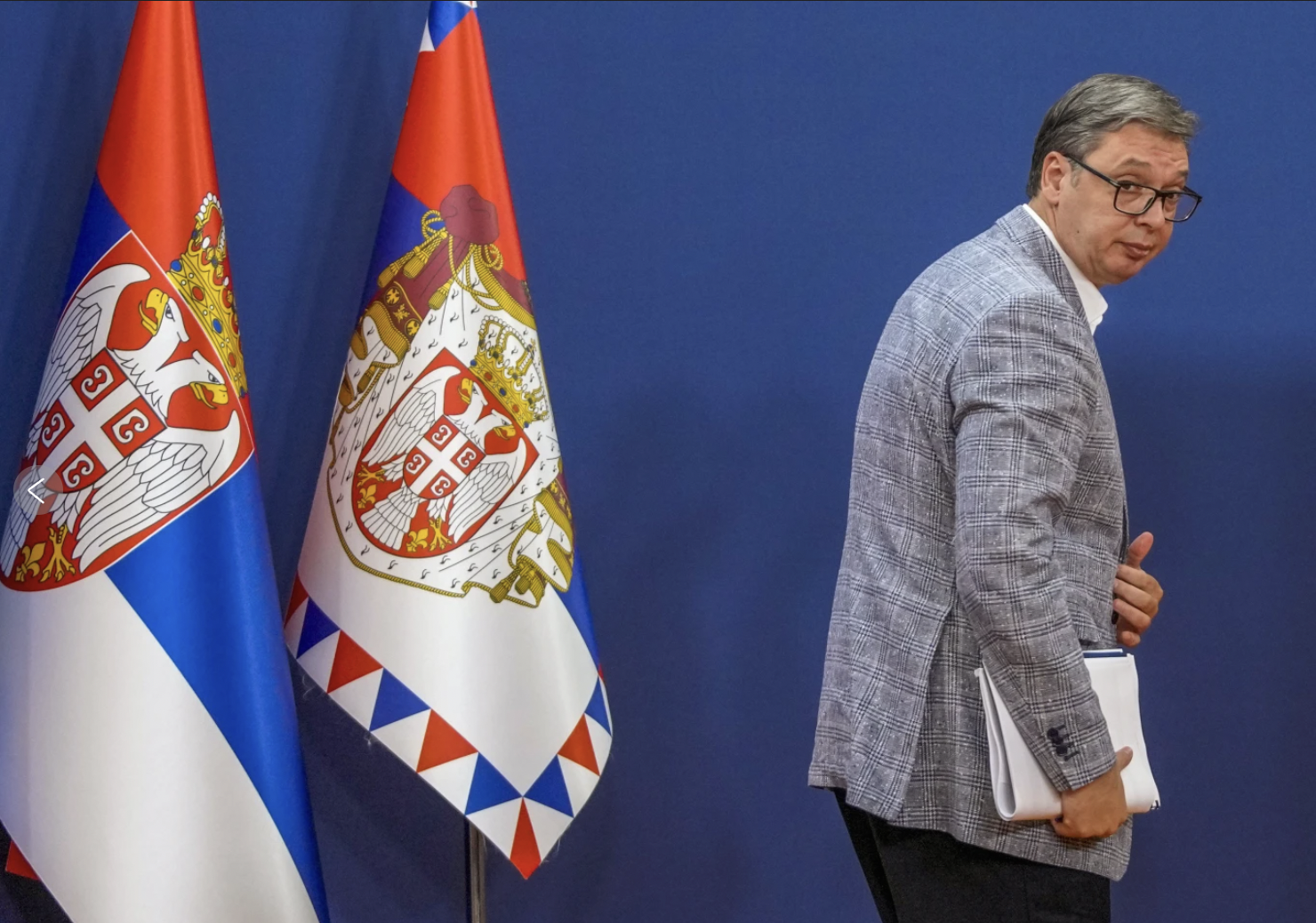
The upcoming early parliamentary elections in Serbia, set for the 17th of December, alongside local elections, carry significant importance for the nation’s political landscape and governance, and for the entire region, taking into account the importance of Serbia in the Balkans.
The elections, triggered after months of street protests organized by several opposition parties, occur at a crucial moment, with Serbia facing pressure from the West to engage in talks with Kosovo aimed at achieving a lasting ‘normalization’ agreement. Furthermore, the vote unfolds in the aftermath of a serious incident in the north of Kosovo, the Banjska incident. Additionally, Belgrade is under EU scrutiny, as the Balkan country has yet to enforce sanctions against its traditional ally, Moscow. Russia staunchly supports Serbia’s position of not recognizing Kosovo’s independence on the global stage and is the major supplier of gas for Serbia.
On November 1, President Vucic officially declared the scheduling of snap parliamentary elections in December. Before this announcement, Vladimir Orlic, the Speaker of the now-dissolved National Assembly, had announced the snap elections in 65 cities and municipalities throughout Serbia, including the capital city of Belgrade, where a one-fifth of the entire population resides.
The central themes of both the ruling party and the opposition campaigns are crucial issues for the country, such as inflation — an overarching concern in the country — alongside the rapidly decreasing standard of living amidst soaring food prices. The situation in Kosovo will also be a key point of debate, with the Serbian society deeply split about how to solve the issue.
Although not a candidate for any position, Vucic will serve as the prominent figurehead for his Serbian Progressive Party (SNS), presenting himself through the SNS once more as the sole leader capable of improving the lives of Serbs, fostering economic growth and safeguarding Serbia’s territorial integrity by resisting foreign pressure to recognize Kosovo. Currently, no other political figure looks capable to challenge Vucic’s dominance in the political scene.
While the coalition-building process is still in progress and the official lists are not yet finalized, it is evident that the primary contender in the upcoming elections will be the SNS, that ascended to power in 2012. Despite a recent relative decline in support among the electorate, Vucic’s party is expected to secure a comfortable majority in the new Parliament. According to a survey conducted by Nova Srpska Politicka Misao (NSPM, New Serbian Political Thought), the Progressive Party is projected to receive approximately 39% of preferences on the 17th of December. This marks a significant decrease compared to the 2020 elections, that were boycotted by the opposition and saw the SNS coalition securing 63% of the vote. It is also lower than the 2022 elections, where the Progressives garnered more than 44% support. The traditional allies of the Progressive Party, such as the Socialist Party led by the current Serbian Foreign Minister Ivica Dacic, are expected to secure 8% of preferences.
The most prominent contender against the SNS is expected to be the ‘Serbia Against Violence’ coalition, a heterogenous alliance formed by various pro-EU, liberal, and environmentalist parties. This coalition emerged in the wake of widespread protests following the tragedy at the Ribnikar elementary school in Belgrade and the surrounding villages of Mladenovac in May 2023 (a series of shooting massacres in schools). According to NSPM, the parties within this ‘anti-Vucic’ coalition could secure up to 26% of the national vote and potentially gain control over Belgrade, a major blow to Vucic.
Other opposition parties, particularly those aligned with nationalist and right-wing ideologies, will most probably run independently. Currently, two coalitions have been officially registered: one comprises Zavetnici (Oath keepers) and Dveri (Doors), prioritizing Kosovo as part of Serbia in their campaign, while the other consists of the New Democratic Party of Serbia and the Movement for the Restoration of the Kingdom of Serbia.
Notably, the December elections are set to take place once more in an environment where key media outlets are indirectly or directly influenced by the governing authorities, and members of the opposition face restricted access to mainstream media.
In summary, the forthcoming elections in Serbia carry substantial implications for the nation’s political dynamics. While there are indications of a probable victory for the Serbian Progressive Party, the aftermath of the possible new triumph is anticipated to bring broader ramifications. There is a prevailing opinion among analysists that, in the event of a successful outcome, President Vucic might opt to strategically defer the establishment of a new government for several months. This calculated delay is viewed as a tactic to stall the dialogue with Pristina, intentionally impeding progress and postponing any potential resolution of the Kosovo issue and on sanctions against Russia for months.
Further News and Views
NATO warns of malign influence of Moscow, puts more troops on the table
Sources: NATO, Associated Press, Stars and Stripes, Reuters, Newsweek, ANSA
NATO Secretary General Jens Stoltenberg undertook a significant trip to Bosnia-Herzegovina, Serbia, Kosovo, and North Macedonia in November. The tour in the Balkans had the precise goal to underscore NATO’s commitment to the region amid rising tensions.
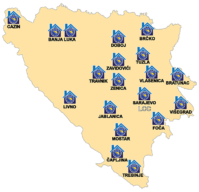
Stoltenberg expressed NATO’s support for Bosnia’s territorial integrity and voiced concerns over “malign foreign interference,” specifically referencing Russia’s involvement in the Balkans. He also highlighted NATO’s unease with secessionist rhetoric and divisive actions in the country, a clear reference to the moves of the Bosnian Serb leader Milorad Dodik. The comments of Stoltenberg arrived just shortly after Ukrainian President Volodymyr Zelensky had cautioned about Russia potentially instigating conflict in the Balkans to divert attention from the ongoing war in Ukraine.
However, Stoltenberg said as well that NATO does not see at this stage a clear military threat from Russia in the region, at least for the countries already part of the military alliance. “We have a military presence in this region with KFOR, with a headquarters in Sarajevo and actually also an office in Belgrade. And we are ready to quickly reinforce and to do what is necessary to defend and protect every Ally against any threat. But again, we don’t see any imminent military threat against any NATO Ally” – Stoltenberg said. The NATO Headquarters has the missions: to advise and assist all local institutions and authorities on defence and security sector reform and NATO Partnership for Peace activities; to provide logistic and other support to the European Union Force in Bosnia and Herzegovina; to maintain the integrity and cohesion of the local armed forces.
Nonetheless, the situation in the region remains volatile, in particular between Serbia and Kosovo. “We are now reviewing whether we should have a more permanent increase to ensure that this doesn’t spiral out of control and creates a new violent conflict in Kosovo or the wider region,” Stoltenberg said during the visit to Pristina. “In every stop” during his Balkan tour “I made clear that stability in the Western Balkans depends on all sides choosing dialogue and diplomacy over conflict and chaos,” he noted. “NATO will do everything possible to ensure regional stability because it is important to NATO,” Stoltenberg added at the end of November, before an important summit in Brussels with the Alliance’s Minister of Foreign Affairs. NATO has contingency planning for the whole region.
EU gives another ‘conditional’ green light to Bosnia and Herzegovina
Sources: European Commission, Financial Times, Balkan Insight
The European Commission’s 2023 enlargement reports, released in November, scrutinized the progress of countries aspiring to join the EU. Notably, the Commission proposed initiating accession negotiations with Ukraine and Moldova, extending a similar recommendation to Bosnia and Herzegovina, but only if Sarajevo meets “certain criteria.”
Bosnia and Herzegovina, having swiftly formed a new government after the elections, demonstrated progress through judiciary reforms, particularly integrity checks, the Commission noted in the progress report. However, additional efforts are needed, in particular regarding the rule of law, judicial, constitutional, and electoral reforms, which are crucial to ensure equal citizen rights and preserve the constitutional order. Brussels also warned that the moves of the political leadership in Republika Srpska entity could deviate the country from the EU path.
However, notwithstanding the open issues, the EU should avoid a “geostrategic disaster” and open negotiation with Bosnia and Herzegovina in December, the Austrian foreign minister Alexander Schallenberg warned. Europe should “not look at Balkans with a magnifying glass and at Kyiv with rose-tinted glasses,” Schallenberg said. Austria, together with Slovenia, Croatia and Italy, is pushing for opening accession negotiations with Bosnia as soon as possible and to keep the doors of the EU open to all Western Balkans’ countries.
“Let’s not create a problem in the region that has been waiting for 20 years” for accession, Stoltenberg noted.
EU - NATO
NATO’s Bulgaria and Romania continue to modernize their military
Sources: Euractiv, Associated Press, Romania Insider, Defense News
Romania and Bulgaria, both members of the EU and NATO and situated in proximity to the conflict in Ukraine, are actively continuing to strengthening and modernizing their defence forces due to concerns that the conflict might escalate in the future. Among the most recent and important moves regarding Romania, the US State Department cleared an estimated 2,5 billion military sale of M1A2 Abrams Main Battle Tanks to Bucharest. Romania is planning to buy 54 M1A2 SEPv3 Abrams tanks. In April, Romania’s Supreme Council of National Defense also approved the acquisition of an unspecified number of latest-generation American-made F-35 fighter jets, as Romania pushed to modernize its air force. Additionally, Bucharest launched a tender to purchase a short-range missile system (value 1,9 billion). Bulgaria was also reportedly about to sign new military deals with the US after parliament approved the purchase of 193 Stryker infantry fighting vehicles for 1,3 billion and expected to buy 3D for another 200 million.
ECONOMICS
Balkans doing too little to cut reliance from ‘dirty’ coal
Sources: CAN, Reuters, BNE Intellinews
Bosnia, Kosovo, and Serbia face criticism from the Climate Action Network (CAN) for lacking concrete strategies to meet greenhouse gas emission reduction goals outlined in their National Energy and Climate Plans (NECPs). The Western Balkan countries have not achieved NECP targets and show minimal effort in transitioning away from coal, hindering progress toward renewable energy, CAN said. The persistent reliance on coal, particularly in Bosnia (60%), Kosovo (90%), and Serbia (70%), complicates the shift to renewables. The report criticizes Kosovo’s lack of a comprehensive lignite phase-out strategy. Serbia is urged to set more ambitious energy efficiency targets aligned with its 2050 climate-neutral commitment. Bosnia plans to keep units of its Tuzla 4 and Kakanj 5 coal-fired plants operational, even though these blocks have surpassed their 20,000 working hours’ threshold and are slated for closure.
“With a heavy reliance on coal, the region needs to establish clear and immediate coal phase-out dates and implement corresponding policies. The outdated and polluting coal technology hampers the energy transition in a time where renewable investments are growing more and more,” said CAN Europe Director, Chiara Martinelli. The region generally remains heavily dependent from coal, extracted locally and from imported Russian gas.

Stefano Giantin
Journalist based in the Balkans since 2005, he covers Central- and Eastern Europe for a wide range of media outlets, including the Italian national news agency ANSA, and the dailies La Stampa and Il Piccolo.

